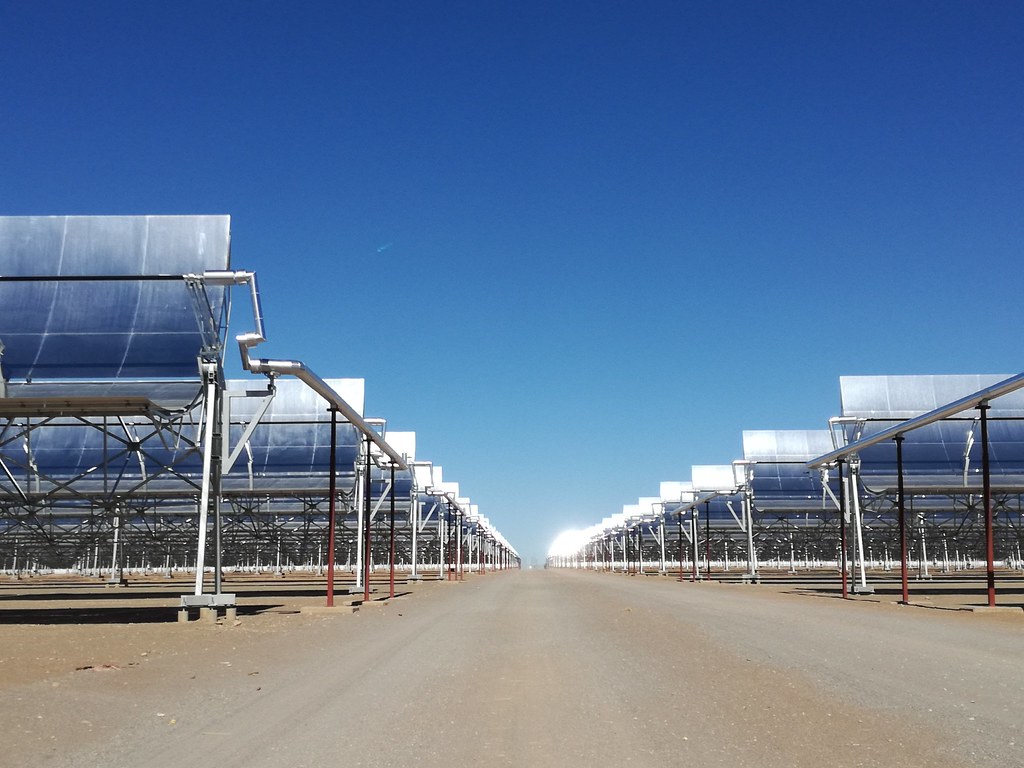A floating device that can turn the ocean’s thermal energy into electricity could soon help a small African country achieve its clean energy goals. São Tomé and Príncipe, an island nation located off the west coast of Africa, has teamed up with Global OTEC, a startup based in the UK, to deploy a barge that uses ocean thermal energy conversion (OTEC) technology.
How OTEC works and what it can do
OTEC is an idea that dates back to 1881 when a French physicist named Jacques Arsene d’Arsonval first suggested it. It uses the temperature difference between the warm water near the ocean’s surface and the cold water deep below to create a cycle of vaporization and condensation that powers a turbine and produces electricity.
Read also: SA clean energy startup wins at the GEA Summit
The barge, which Global OTEC calls “Dominique”, will have a capacity of 10 megawatts and will be connected to the island’s grid by an underwater cable. The barge will pump warm water from the surface and cold water from the depths through pipes and use them to heat and cool a fluid with a low boiling point, such as ammonia. The heated fluid will turn into a gas and spin a turbine, and the cooled fluid will turn back into a liquid and go back to the pipes.
Why São Tomé and Príncipe needs OTEC
São Tomé and Príncipe is one of the many tropical islands that struggle to provide reliable and affordable electricity to their people. The island currently depends on diesel generators and imported fuel, which are expensive and polluting. Wind and solar power are not suitable due to the island’s isolation and limited land area.
OTEC, on the other hand, offers several benefits for the island. It is a renewable and carbon-free source of energy that can run 24/7, unlike variable sources like wind and solar. It is also compatible with the island’s location near the equator, where the ocean temperature difference is at least 36 degrees Fahrenheit all year round. Furthermore, OTEC can also provide other benefits, such as freshwater, cooling, and aquaculture.
What are the challenges and opportunities of OTEC
OTEC is not a new technology, but it has been largely ignored in the renewable energy mix over the years. According to Dan Grech, the founder and CEO of Global OTEC, the main reasons are the high upfront cost and technical complexity of building and operating OTEC plants. However, he believes that the floating barge design can overcome these obstacles by reducing the construction cost and environmental impact, as well as improving the energy efficiency and durability of the system.
Grech told Interesting Engineering that he is on a mission to rid tropical islands of diesel generators and that Dominique marks the beginning of a renewable transition. He said that the project, which received approval in June and is expected to start installation in 2025, could serve as a model for other island nations that are vulnerable to the effects of climate change and rising global temperatures. He added that Global OTEC is already in talks with several potential clients in the Caribbean, Pacific, and Indian Ocean regions.
Global OTEC is a company that specialises in ocean thermal energy conversion (OTEC) technology, which uses the temperature difference between the warm surface water and the cold deep water of the ocean to generate electricity.




